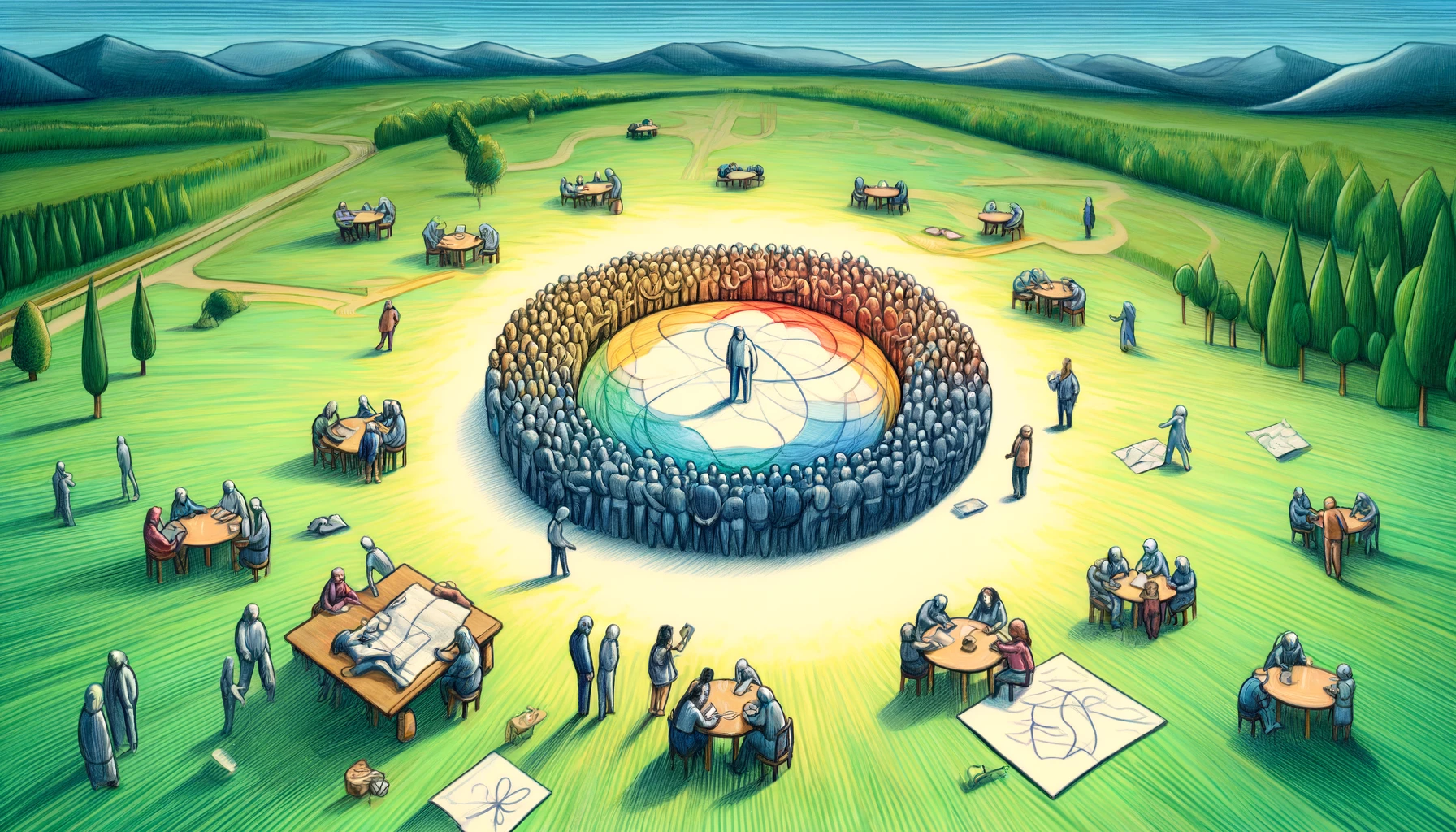What does it look like to aim for flow & sovereignty? There’s a kind of conversation that can surface all that’s present for people and allow a lot of sensemaking to occur. How do you get to such a conversation? There are various elements:
There’s also a matter of “what is the point of this conversation?” I think the best conversations have an orientation towards some fluid emergent combination of:
There might also be a specific topic, perhaps reflecting on an experience that everyone just went through together, or a question that one person has convened the conversation about.
I sometimes call these sorts of conversations a “co-what-now” process. “What now” is both about “what do we do now?” and also simply about making space to collectively hold the implications of whatever has just happened and what everyone’s sitting with. And when it’s working, there’s a lot of getting on the same page, that emerges clarity of the situation and of the next steps, and leaves people feeling satisfied and understood.
It seems to me like for some groups, eg ones oriented towards operating in a metarational way, it makes sense for them to aim towards having conversations like these on a consistent basis, not necessarily formally but in terms of the basic stance & attitude, and to incline towards whatever makes these conversations more satisfying.
And if one person is clear that the thing they need to do is some specific solo project, then perhaps they don’t participate in the co-what-now conversation at all (or beyond showing up to say “I’m gonna go do X”). There’s obviously a cost to having that person not present, but ideally there’s a collective sense of trusting that that person is taking that into account in their prioritizing. And if not, then that gets talked about. And maybe that person wants the large-group co-what-now conversations to happen at a different time of day or something. And maybe the conversations are recorded and the person listens to them later, or maybe someone else fills them in. Or maybe they just take some distance for a day or a week, and this is also workable.
And maybe one person isn’t actually internally clear about what they need to do, but they’re conflicted and tangled about something that feels really pressing and urgent but they don’t know how to solve it. In such a case, it’ll be hard for that person to settle into a collective train of thought & not-knowing because their situation will be dominating their experience. It may be possible for them to expand their awareness while holding onto that situation, so they can step into co-flow, although if they experience doing so and their situation often continues to remain unresolved at the end of the conversation, they will—accurately!—feel like the conversation is failing to address what’s most pressing to them, which will produce distrust and oscillation.
If they can’t expand their awareness enough to get into a kind of collective flow (which should be very rare by the time you get to a fully collaborative group but will be common with a partway there group) then there’s a sense in which what they need to do is whatever is going to solve their situation and liberate their attention so they can rest. That might not be a total solution, but something that makes the situation feel handled. And some or all of the other people might be able to support them in that with conversation or coaching or labor or whatever else, but also perhaps not. And the other people may or may not feel appetite towards supporting them in that. And the others may also want to still convene with each other, sensing into what-now in the context of the situation of one person being preoccupied by something else.
Note that one interesting phenomenon is that a conversation of 2 or more people yields a clear next step for one person, that makes obvious sense to do, but when they go to do it they find it’s not so obvious anymore. This can be for a few reasons:

Constantly consciously expanding the boundaries of thoughtspace and actionspace. Creator of Intend, a system for improvisationally & creatively staying in touch with what's most important to you, and taking action towards it.
Have your say!